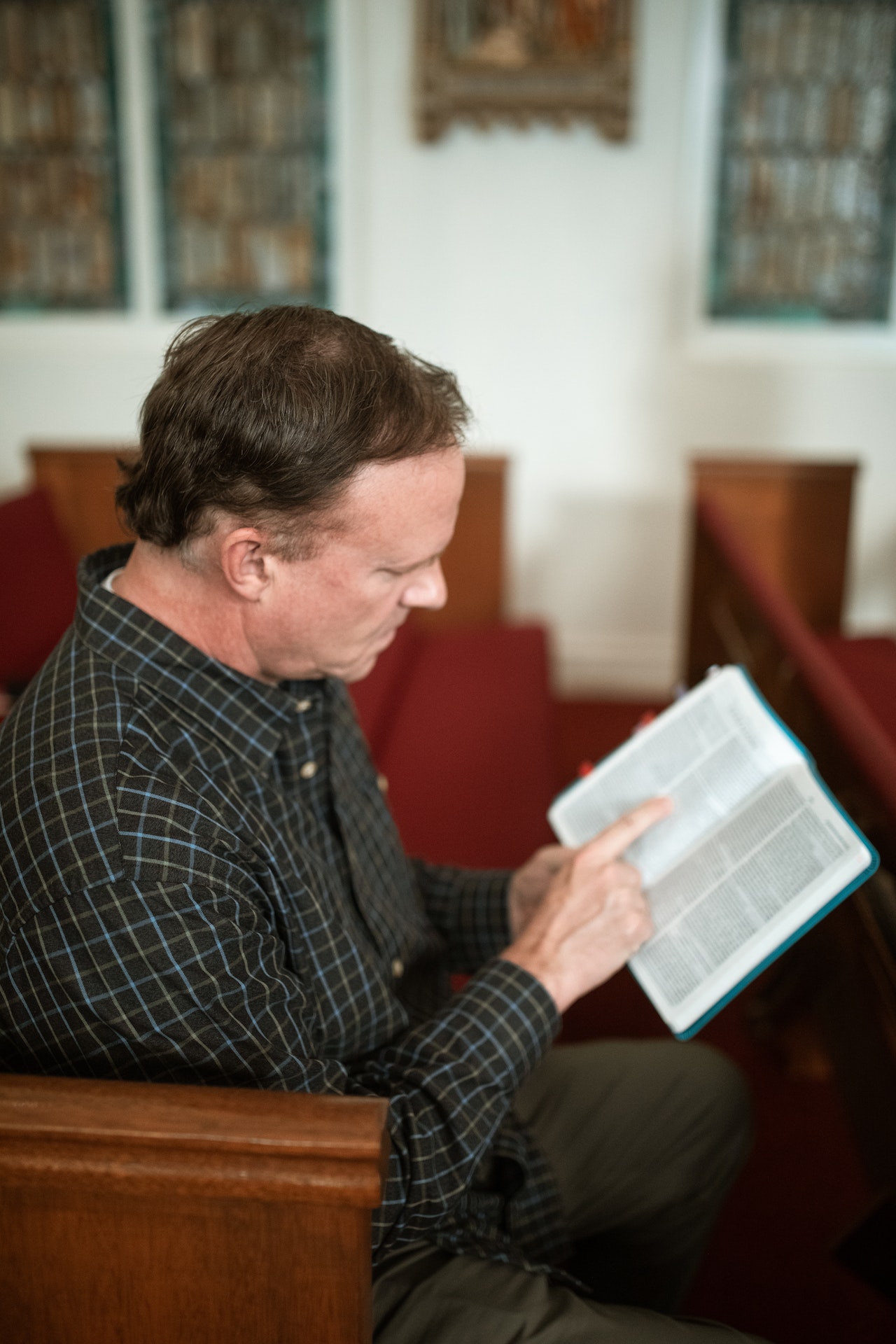Orthodox Christians have varying perspectives on whether or not to celebrate Halloween. Some argue that it conflicts with their religious beliefs and promotes pagan or occult practices. Others believe that it can be celebrated in a more wholesome and secular manner. Ultimately, the decision to celebrate Halloween within the Orthodox community is a personal one, guided by individual convictions and the teachings of their respective churches.
Table of Contents
The Origins and History of Halloween in Orthodox Christianity
Halloween, with its spooky costumes, haunted houses, and trick-or-treating, is a holiday that is celebrated by millions of people around the world. However, for Orthodox Christians, the question of whether or not to celebrate Halloween can be a bit more complicated. In order to understand the Orthodox perspective on Halloween, it is important to delve into the origins and history of this holiday in Orthodox Christianity.
The origins of Halloween can be traced back to the ancient Celtic festival of Samhain, which marked the end of the harvest season and the beginning of winter. It was believed that on the night of October 31st, the boundary between the living and the dead was blurred, and spirits could roam freely on Earth. To ward off these spirits, people would light bonfires and wear costumes to disguise themselves.
When Christianity spread to the Celtic lands, the Church sought to replace pagan festivals with Christian ones. In the 9th century, Pope Gregory III designated November 1st as All Saints’ Day, a day to honor all the saints and martyrs. The night before, October 31st, became known as All Hallows’ Eve, which eventually evolved into Halloween.
In Orthodox Christianity, the commemoration of saints and martyrs is an integral part of the faith. The Church has a rich tradition of honoring these holy men and women throughout the year. However, Halloween, with its focus on ghosts, witches, and other supernatural beings, can be seen as conflicting with the Orthodox understanding of the afterlife.
Orthodox Christians believe in the resurrection of the dead and the final judgment. The Church teaches that after death, the soul goes to either heaven or hell, and there is no interaction between the living and the dead. Therefore, the idea of spirits roaming the Earth on Halloween goes against this belief.
Furthermore, the Church encourages its members to focus on the spiritual life and to avoid anything that may lead to superstition or fear. Halloween, with its emphasis on the macabre and the occult, can be seen as promoting these negative elements.
However, it is important to note that not all Orthodox Christians view Halloween in the same way. Some may choose to participate in Halloween festivities, but with a different focus. Instead of dressing up as ghosts or witches, they may choose to dress up as saints or biblical characters. They may also use the occasion to teach their children about the lives of the saints and the importance of faith.
Ultimately, the decision of whether or not to celebrate Halloween is a personal one for Orthodox Christians. It is important to consider the teachings of the Church, as well as one’s own spiritual journey. Some may choose to abstain from Halloween altogether, while others may find ways to participate in a manner that aligns with their faith.
In conclusion, the origins and history of Halloween in Orthodox Christianity reveal a complex relationship between the holiday and the faith. While the Church encourages its members to focus on the spiritual life and to avoid superstition and fear, the decision of whether or not to celebrate Halloween ultimately rests with the individual. It is a personal choice that should be made with careful consideration of one’s faith and spiritual journey.
Examining the Cultural and Religious Significance of Halloween for Orthodox Believers

Halloween is a holiday that is celebrated by millions of people around the world. It is a time for dressing up in costumes, going trick-or-treating, and indulging in sweet treats. However, for Orthodox believers, the question of whether or not to celebrate Halloween can be a complex one. In this article, we will examine the cultural and religious significance of Halloween for Orthodox believers, and explore the different perspectives on this issue.
For many people, Halloween is simply a fun and lighthearted holiday. It is a chance to let loose, be creative, and enjoy the company of friends and family. Dressing up in costumes allows people to temporarily become someone or something else, and going trick-or-treating is a way to connect with the community and share in the joy of the holiday. From this perspective, Halloween is seen as a harmless and enjoyable tradition that can be celebrated by anyone, regardless of their religious beliefs.
However, for Orthodox believers, the religious significance of Halloween is a cause for concern. Halloween has its roots in ancient pagan festivals, such as Samhain, which marked the end of the harvest season and the beginning of winter. These festivals were often associated with the worship of pagan gods and spirits, and included rituals and practices that were incompatible with Orthodox Christian beliefs. As a result, some Orthodox believers view Halloween as a holiday that is steeped in pagan traditions and should be avoided.
On the other hand, there are those within the Orthodox community who believe that Halloween can be celebrated in a way that is consistent with their faith. They argue that Halloween has evolved over time and has become more of a secular holiday than a religious one. They see it as an opportunity to engage with the culture around them, while still maintaining their Orthodox beliefs. For these believers, Halloween can be a chance to teach their children about the importance of discernment and critical thinking, and to demonstrate how their faith can be lived out in the midst of a secular society.
Ultimately, the decision of whether or not to celebrate Halloween is a personal one for Orthodox believers. It is a matter of conscience and discernment, and there is no one-size-fits-all answer. Some may choose to abstain from Halloween altogether, while others may choose to participate in certain aspects of the holiday while avoiding those that conflict with their faith. What is important is that each individual takes the time to prayerfully consider their own beliefs and convictions, and to seek guidance from their spiritual leaders.
In conclusion, the question of whether or not Orthodox believers should celebrate Halloween is a complex one. While some view it as a harmless and enjoyable holiday, others see it as a celebration rooted in pagan traditions. Ultimately, the decision of whether or not to celebrate Halloween is a personal one that should be made with careful consideration and discernment. Regardless of one’s stance on the issue, it is important to approach the topic with respect and understanding, recognizing that different individuals may have different perspectives based on their own beliefs and convictions.
Exploring the Debate: Should Orthodox Christians Participate in Halloween Activities?
Halloween is a holiday that is celebrated by millions of people around the world. It is a time for dressing up in costumes, going trick-or-treating, and indulging in sweet treats. However, for Orthodox Christians, there is a debate about whether or not they should participate in Halloween activities. Some argue that Halloween has pagan origins and promotes a culture of darkness and evil. Others believe that it can be a harmless and fun way to celebrate the fall season. So, should Orthodox Christians celebrate Halloween?
One of the main arguments against celebrating Halloween is its pagan origins. Halloween is believed to have originated from the ancient Celtic festival of Samhain, which marked the end of the harvest season and the beginning of winter. During this festival, it was believed that the boundary between the living and the dead was blurred, and people would light bonfires and wear costumes to ward off evil spirits. Some argue that participating in Halloween activities is a form of idolatry and goes against the teachings of the Orthodox Church.
On the other hand, there are those who believe that Halloween can be a harmless and fun way to celebrate the fall season. They argue that the pagan origins of Halloween have been largely forgotten and that it has evolved into a secular holiday focused on costumes and candy. For many children, Halloween is simply a time to dress up as their favorite characters and go door-to-door collecting candy. It can be seen as a way to foster creativity and imagination in children, rather than promoting darkness and evil.
Another argument in favor of celebrating Halloween is that it can be an opportunity for Orthodox Christians to engage with their communities. Halloween is a widely celebrated holiday, and many neighborhoods organize events and activities for children and families. By participating in these events, Orthodox Christians can build relationships with their neighbors and show them that they are part of the community. It can also be a chance to share their faith and values in a positive and non-confrontational way.
However, it is important for Orthodox Christians to approach Halloween with discernment and caution. While participating in harmless activities like dressing up and trick-or-treating may be acceptable, it is important to avoid anything that promotes darkness, evil, or the occult. This means avoiding costumes that are inappropriate or offensive, as well as decorations and activities that glorify violence or the supernatural. It is also important to remember that Halloween is just one day out of the year, and it should not overshadow the importance of other Christian holidays and traditions.
In conclusion, the debate about whether or not Orthodox Christians should celebrate Halloween is a complex one. While some argue that its pagan origins and association with darkness and evil make it incompatible with the teachings of the Orthodox Church, others believe that it can be a harmless and fun way to celebrate the fall season. Ultimately, it is up to each individual and their spiritual advisor to discern what is appropriate for them and their families. The key is to approach Halloween with discernment, avoiding anything that promotes darkness or the occult, and to remember that it is just one day out of the year.
Alternative Ways for Orthodox Families to Celebrate Halloween
Halloween is a holiday that is celebrated by millions of people around the world. It is a time for dressing up in costumes, going trick-or-treating, and indulging in sweet treats. However, for Orthodox families, there may be some hesitation when it comes to participating in Halloween festivities. The question arises: should Orthodox families celebrate Halloween? While there is no definitive answer, there are alternative ways for Orthodox families to celebrate this holiday without compromising their beliefs.
One alternative way for Orthodox families to celebrate Halloween is by focusing on the historical and cultural aspects of the holiday. Halloween has its roots in ancient Celtic traditions, specifically the festival of Samhain. This festival marked the end of the harvest season and the beginning of winter. By learning about the history and significance of Halloween, Orthodox families can appreciate the cultural aspects of the holiday without engaging in activities that may conflict with their beliefs.
Another alternative is to host a fall-themed party for family and friends. Instead of dressing up in costumes and going trick-or-treating, Orthodox families can gather together to enjoy the beauty of the season. They can decorate their homes with autumnal colors and symbols such as pumpkins, leaves, and scarecrows. They can also prepare traditional fall foods like apple cider, pumpkin pie, and roasted chestnuts. By focusing on the seasonal aspects of Halloween, Orthodox families can create a festive atmosphere without compromising their beliefs.
Additionally, Orthodox families can use Halloween as an opportunity to teach their children about the importance of giving back to the community. Instead of collecting candy while trick-or-treating, children can collect donations for a charitable cause. They can go door-to-door in their neighborhoods, explaining their mission and asking for contributions. This not only allows children to participate in the Halloween spirit but also instills in them the values of compassion and generosity.
Furthermore, Orthodox families can choose to celebrate All Saints’ Day, which falls on November 1st, instead of Halloween. All Saints’ Day is a Christian holiday that honors all the saints, known and unknown. Orthodox families can attend church services, light candles, and offer prayers for their loved ones who have passed away. By shifting the focus from Halloween to All Saints’ Day, Orthodox families can celebrate a holiday that aligns more closely with their religious beliefs.
In conclusion, while the question of whether Orthodox families should celebrate Halloween remains subjective, there are alternative ways for them to partake in the festivities without compromising their beliefs. By focusing on the historical and cultural aspects of the holiday, hosting fall-themed parties, giving back to the community, or celebrating All Saints’ Day, Orthodox families can find ways to enjoy this time of year while staying true to their faith. Ultimately, it is up to each individual family to decide how they want to approach Halloween and what feels right for them.
Conclusion
In conclusion, whether Orthodox individuals should celebrate Halloween is a personal decision that may vary based on individual beliefs and interpretations of religious teachings. Some may argue that participating in Halloween contradicts Orthodox principles, while others may view it as a harmless cultural event. Ultimately, it is up to each Orthodox individual to consider their own faith and make an informed decision on whether or not to celebrate Halloween.



